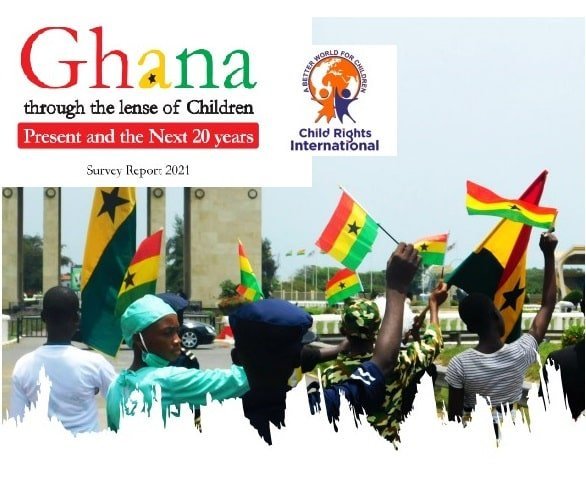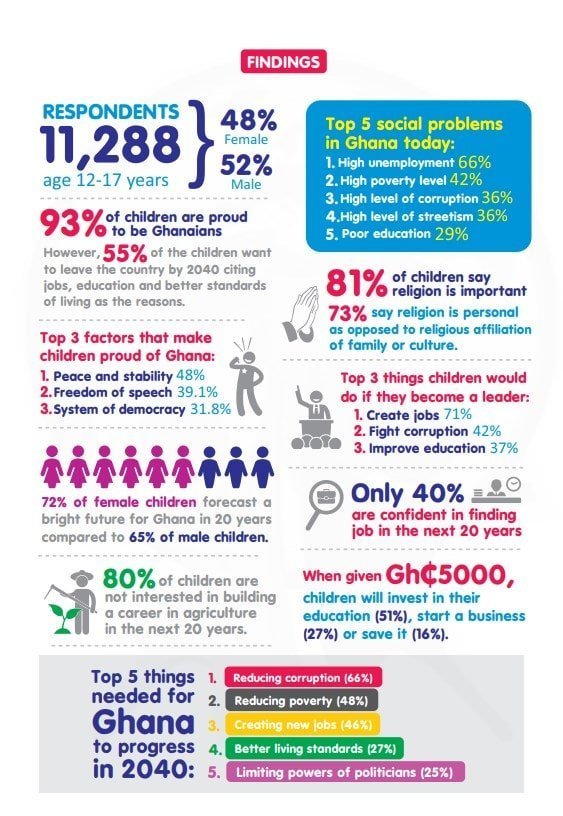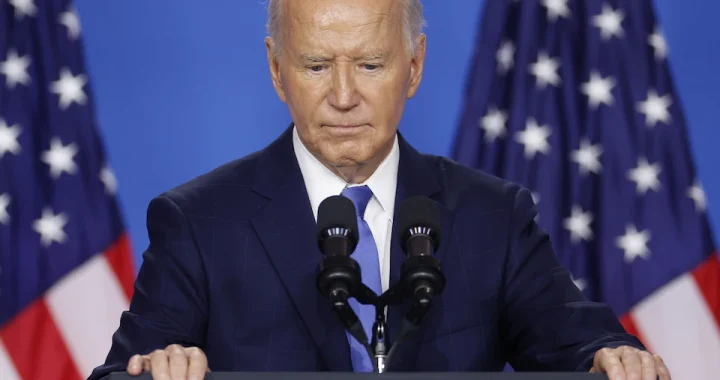55% Ghanaian children want to leave for greener pastures abroad by 2040– Survey

A survey conducted by Child Rights International with 11,288 respondents who were all children has revealed that 93% of respondents are proud to be Ghanaians. However, 55% of the children prefer to leave the country by 2040 for better opportunities.
“55% of the respondents say they wish to migrate to another country, while 11% would either stay in the country or leave”
In 2040, the respondents would be in their prime years between 31 and 36 years. The 55% who prefer to travel out of the country does not paint a good picture as these children at their younger ages today can tell that the country is faced with challenges that do not create the enabling environment and opportunities they need in about 20 years.
The 12-17 years who were interviewed disclosed what they would have done differently if they were in leadership.
READ: How your SSNIT Retirement (Pension) Benefit is Calculated
The survey found out that the top three things the children will do given the chance to lead were to create jobs; thus 71% of respondents. Another 41% said they would fight corruption if they get the opportunity to lead. Some 37% of the respondents would channel their leadership efforts towards improving education standards in the country.

Many of the respondents cited greener pastures, education, and a better standard of living in others countries as the motivating factors should they get the chance according to the survey.
However, “Nearly 80% of the respondents say they are optimistic about Ghana in the next 20 years but nearly two in ten respondents (22%) see the country’s future as bleak”.
FULL REPORT: CRI_Children_Survey_2021_FINAL – DOWNLOAD
On Education and opportunities, the survey said: “Over half of the children (53%) say they are optimistic. 47% of the respondents paint a bleak picture as to how the country’s current educational system would help them find jobs in the next 20 years”.
Read: How to Link and Verify your TIN / Ghana Card Number
On religion, the research noted, “81% of the children say religion is important. 73% of the children say religion is personal as opposed to the religious affiliation of their family (parents or guardians) or culture.”
Source: Ghanaeducation.org


 Civil Service Announces 2024 Online Examination Details for Graduate Applicants
Civil Service Announces 2024 Online Examination Details for Graduate Applicants  BREAKING: President Biden Announces Decision Not to Seek Reelection
BREAKING: President Biden Announces Decision Not to Seek Reelection  Real Reason Behind the Appointment of Yohunu as Deputy IGP
Real Reason Behind the Appointment of Yohunu as Deputy IGP  GES 2024-2025 Academic Calendar for Public Schools
GES 2024-2025 Academic Calendar for Public Schools  GES to recruit university graduates and diploma holders-GES Director General
GES to recruit university graduates and diploma holders-GES Director General  Dr. Bawumia’s Smart Phone Credit Will Take 125 Years To Repay: A Misleading Promise
Dr. Bawumia’s Smart Phone Credit Will Take 125 Years To Repay: A Misleading Promise  GES is expected to announce reopening dates for public schools today
GES is expected to announce reopening dates for public schools today